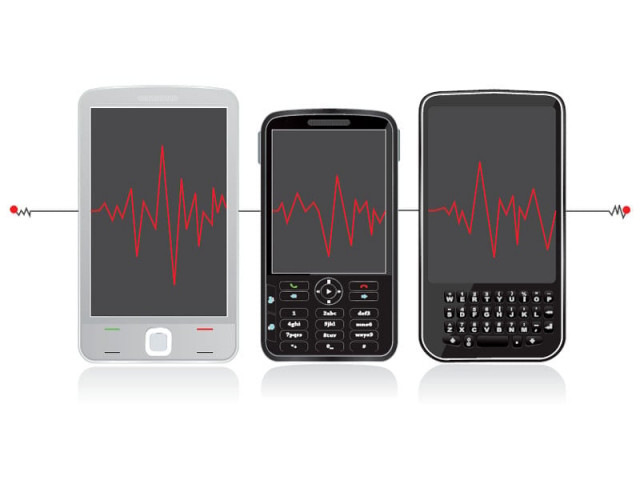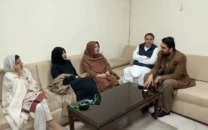Khul ja SIM SIM: Cell phone black market works around blocked sets
The parts are the real reason cell phone snatchings continue in Karachi.

The black market for cell phones in Karachi has some of the best electronic engineering brains. These men have figured out a way to still make a profit from a blocked cell phone.
If a cell phone is stolen, the owner can block it through the 15-digit International Mobile Equipment Identity (IMEI) number that comes with every set. They call the Pakistan Telecommunication Authority (PTA) that blocks the number. However, this technology only works in Pakistan. Thus, the black market smuggles the phones outside the country, especially Afghanistan, since the PTA can only block the phone within Pakistan.
Another way the black market still profits on blocked phones is by tearing them apart. An estimated 80 per cent of snatched phones are dismantled and their parts are sold. “The reason you have genuine mobile parts available in the market, that too for a cheaper price, is because we sell them from the sets which have been stolen,” confessed a cell phone technician at a famous market.
These parts include the buzzer/ringer/loud speaker, microphone, speaker (earpiece), battery charger, battery, SIM card connector and holder, LCD (screen), different kinds of integrated circuits like the keypad, display, power, joystick, vibrator, antenna, board, data chip and camera.
The new BlackBerry Bold 4, for example, costs about Rs38,000 when bought new. A thief will sell it to the black market for Rs15,000. And the black market will dismantle its parts and sell them for Rs20,000 – thereby making a five-thousand-rupee profit.
Some people prefer getting rid of the IMEI chip altogether by burning it and replacing it with another one from a phone which is broken or useless. But according to the electrician, this requires certain skill and can make the phone useless. “If the IMEI chip is even slightly damaged during the process, then the set could become useless. That is why this practice is not as common.”
Also, mobile phone experts remove the software from the data chip of the cell phone and install new software which unblocks the set.
Loss for others, gain for some
The technician told The Express Tribune that previously he used to work at a shop but now, he is running three of his own shops because business is so good. “We don’t value those who work well in this country, we value those who earn well. If I hadn’t gotten involved in this business, someone else would have,” he argued.
He said that when the PTA introduced the IMEI blocking system, about four to five years ago, the market was initially set back but eventually found a way around it. “We started selling phone parts, which was if not more, then equally lucrative as selling the phone.”
The technician explained that he has a ‘phone supplier’ and does not purchase snatched or stolen phones from strangers. Most of the technicians have contact with particular thieves and phone snatchers who provide them bags of stolen phones every month. “There are separate bags for different mobile manufacturing companies. The first thing we check is how many phones are unblocked because most of the time people do not know their IMEI number or don’t bother contacting the PTA or police.”
Who is keeping watch
PTA spokesperson Mohammad Younus said that while it is not just their responsibility, the authority took this step itself to combat rampant phone snatching in the city. “There is no system in the world which is fullproof and in Pakistan,” he said. “And we have people here who find loopholes in technology before it is even fully developed.”
Younus said that unless the PTA, Citizens-Police Liaison Committee, police, and mobile phone market associations work together, there will not be an end to the snatchings.
CPLC chief Ahmed Chinoy lamented that unblocking software is already available in the market but unfortunately, there is no law against it. “Almost 70 per cent of the phone markets in the city are not regularised,” he explained. “The business of selling and buying stolen phones is going on here without any check or balance.” Over 20,000 cell phones are snatched or stolen annually but only 10 to 20 per cent are found and even those are mostly the ones which are usually lost. “The police are often involved in these cases,” said a representative of the mobile phone market association on condition of anonymity. “Until the police take action, no one else can do anything.”
Published in The Express Tribune, May 20th, 2012.



















COMMENTS
Comments are moderated and generally will be posted if they are on-topic and not abusive.
For more information, please see our Comments FAQ